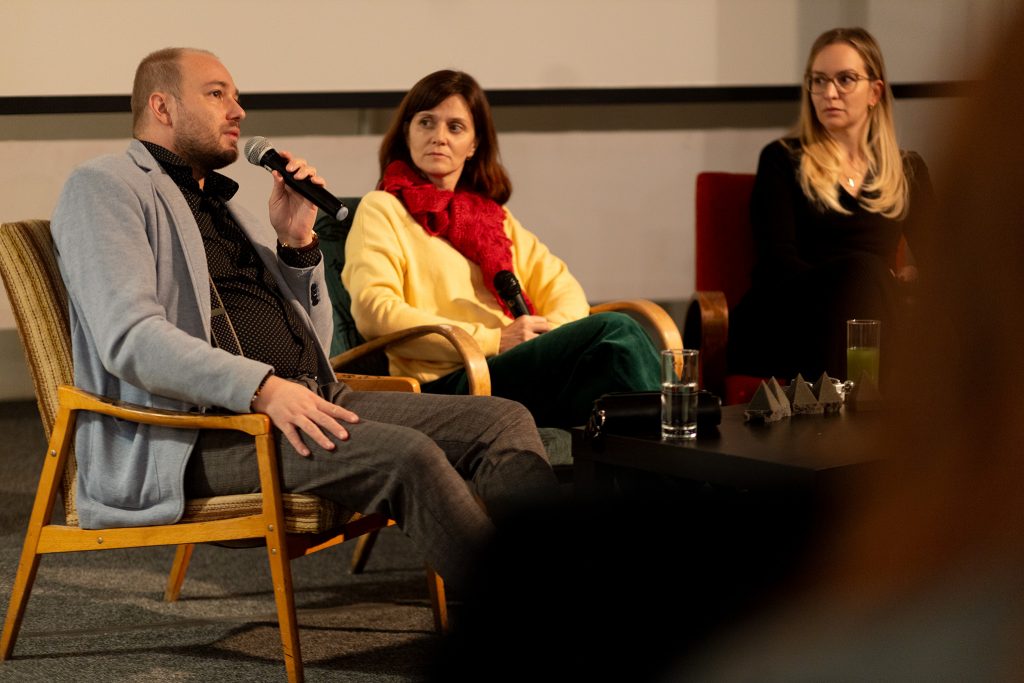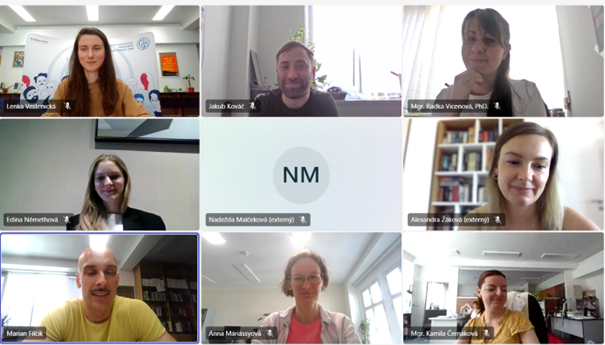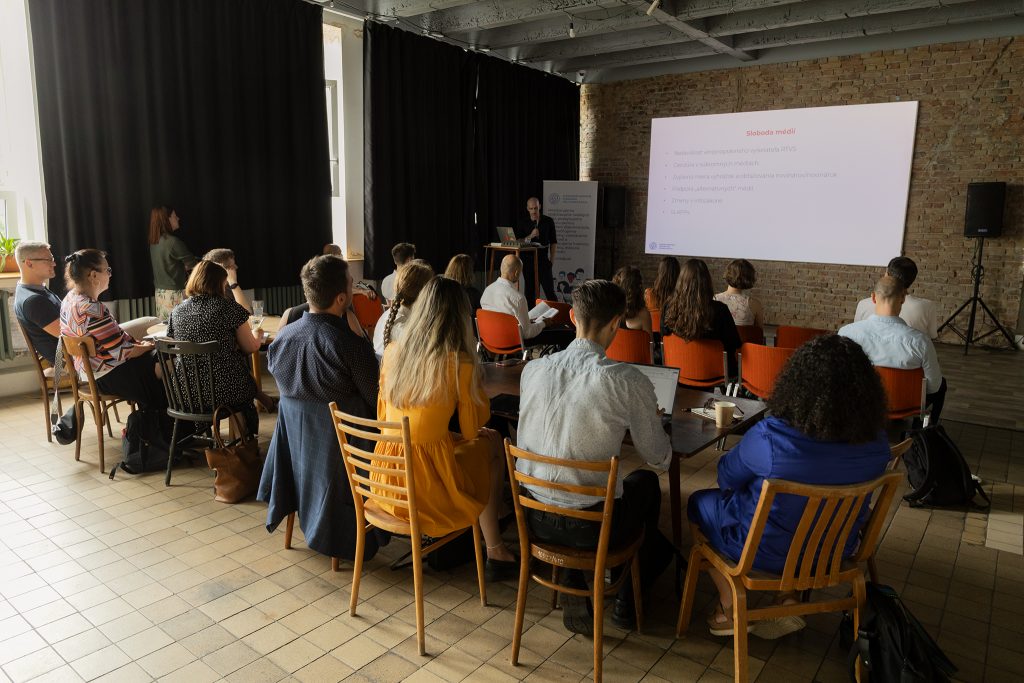Deliverable 3: Rule of Law Festival 2025

On October 23., the Centre organised one of a series of discussions on Rule of Law and Human Rights, this time in Košice at a local cultural centre Tabačka Kulturfabrik. The discussion focused on issues of access to justice, with a particular focus on vulnerable groups.
Our expert panel for this event consisted of :
- Petra Melikantová, KIND (Kids in Need of Defense), who works with unacompanied minors;
- Michaela Dojčinovičová, Liga za ľudské práva, lawyer providing legal aid to migrants and asylum seekers;
- Joachim Dušan Fraňo, lawyer working with civil society organizations in eastern Slovakia.
The discussion was moderated by Marian Filcik from the Centre. Discussion focused on equal access to justice as one of the fundamental human rights and how justice must be equally accessible and accommodating to all citizens, including particularly vulnerable people.
Our aim was to point out the barriers faced by all, such as financial costs and then highlight how vulnerable groups face others, including discrimination and mistrust in addition to the barriers faced by the majority population.
Our panel highlighted, that one of the main issues in Slovakia is the lack of sensitivity to even acknowledge someone’s vulnerable status, which is faced by all clients our experts work with, including unacompanied minors which are not deemed vulnerable as they reach an age closer to 18.
In our discussion we also highlighted some positive experiences with various local agencies and institutions, even though those are not the norm, yet.
As a recommendation for our work and engagement with responsible government agencies, the panel highlighted the need to recognize vulnerability of various groups based on status, rather than appearance or behaviour, which often, together with stereotypical expectations of how certain groups should look like and behave, seem to play a key role in how they are treated by state actors.
In the final Q&A the audience focused their questions on the positive examples mentioned in the discussion and how they could be promoted, especially given that clients often don’t wish to become public personas and such promotion may even backfire and harm the officials doing their job well. As an example the panel mentioned the Social Act of the Year award given out by the Ministry of Labor as an example of a way to appreciate and promote positive examples within public service.









